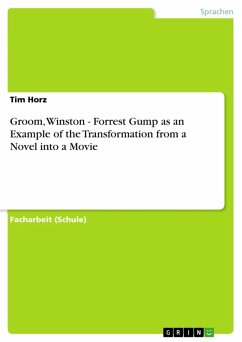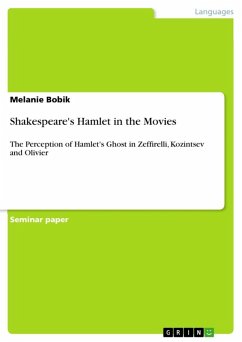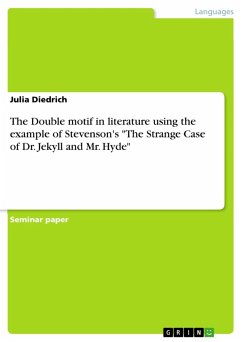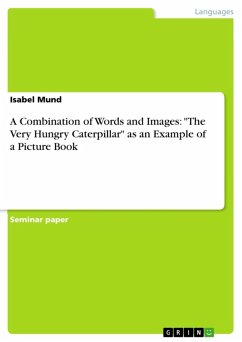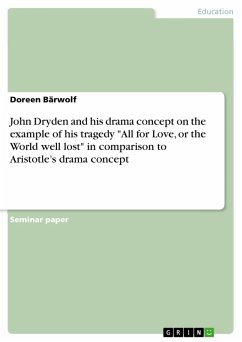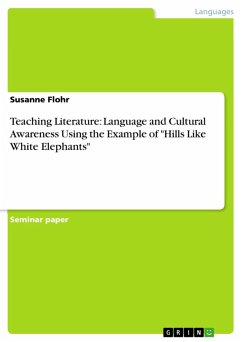Facharbeit (Schule) aus dem Jahr 1998 im Fachbereich Didaktik für das Fach Englisch - Literatur, Werke, Note: 1, Priv. Gymnasium Marienstatt, Veranstaltung: Leistungskurs Englisch, Sprache: Deutsch, Abstract: "Hello - My name is Forrest, Forrest Gump!" Everyone who knows the movie Forrest Gump remembers this first sentence, the beginning of Forrest's story. This sentence is an introduction as well as the foundation for a story that describes Forrest's life in a very detailed way. In the film Forrest is a narrow-minded, naive and completely innocent boy from the Deep South who lives in a very strange way through a decisive period of America's immediate past. His participation in this period is so strange because he is actively making history without realising that; he only lives from day to day - and his most immediate goal is to finally reach his one and only love - Jenny. Therefore, his life can be described as "accidental-like on a breeze", and at the same time he has a "destiny" as well - and in the end Forrest is smart enough to understand this paradox of his life. Forrest Gump is basically a mirror of the sixties and seventies of our century. Through his eyes we can see our immediate past. "We" includes the older audience - who lived through that period themselves - as well as the younger audience who can learn a lot about the era of their parents. The movie touched the souls of many Americans who can identify certain parts of their own life (or the life of their parents) in that of Forrest, but those feelings were shared throughout the world by many nations as well. But the movie itself is based on a novel written by Winston Groom. Here the author describes a different Forrest Gump - and yet the same. This other Forrest Gump had a different life, but the key elements are still the same in his modified "counterpart". Therefore it will be my goal to find out by what means and how well Groom's original novel Forrest Gump was transformed into the movie version Forrest Gump. There will be a detailed comparison between the two characterisations of Forrest Gump, a look at the "minor" characters, different views on the "visual conversion" and a final decision whether the transformation itself can be called appropriate or not.
Dieser Download kann aus rechtlichen Gründen nur mit Rechnungsadresse in A, B, BG, CY, CZ, D, DK, EW, E, FIN, F, GR, HR, H, IRL, I, LT, L, LR, M, NL, PL, P, R, S, SLO, SK ausgeliefert werden.

